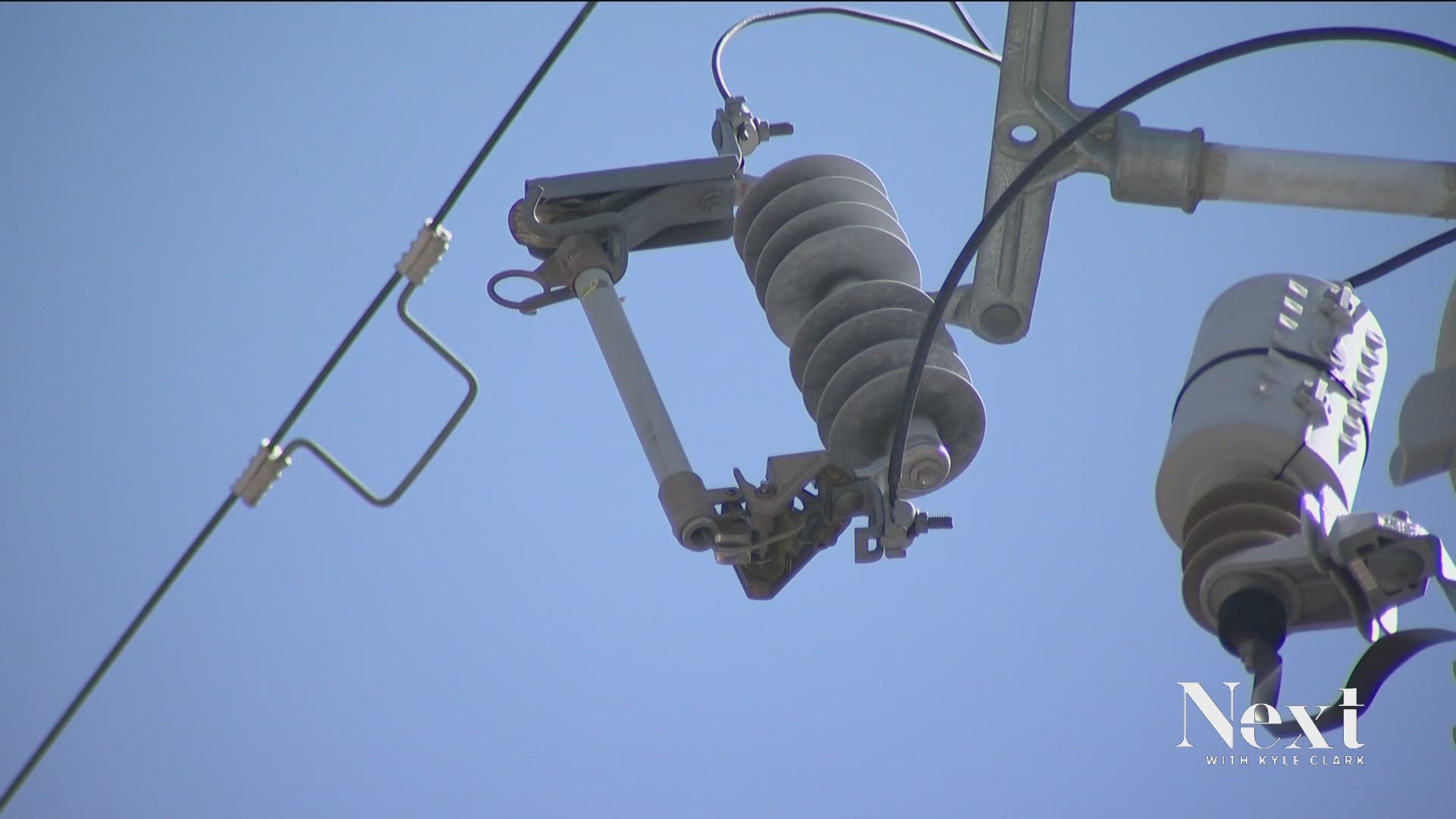DENVER — When high, sustained winds hit the Denver metro area this past weekend, Xcel Energy went with a nuclear response.
The utility company purposefully shut off power to 55,000 people in six counties to avoid the risk of their equipment starting a wildfire.
The Colorado Public Utilities Commission is now investigating how it was managed.
Just like a circuit breaker in your home, power lines have fail-safes.
At home, the first layer of protection is a GFCI outlet, the kind with a “test” and “reset” button. They trip if there is a load issue, shutting down a hair dryer or curling iron.
The second layer of protection at home would be a circuit breaker. A section of your home would shut down if there is a load problem with an appliance or a specific part of the home, but the remainder of the house would stay on.
The last layer would be the main circuit breaker shutting down, killing power to the entire house.
On a power grid, power lines have reclosers.
“Look at them like an automatic circuit breaker,” said Omid Beik, Colorado School of Mines assistant professor of electrical engineering. “The function of a recloser is to disconnect and automatically connect the circuit back if there is a temporary fault.”
Consider a fault like a tree branch landing on power lines.
“It continuously is measuring the current, call it power. As soon as there’s a change in the power, that’s when it reacts,” Beik said of the recloser.
According to Xcel, their reclosers are normally set to a “three-shot.”
That means if a tree branch falls on the lines, or there is some other fault, the recloser will notice the fault and it will open, stopping the flow of electricity. That is one shot. It will then close a few seconds later, and if the fault is gone, electricity will continue to down the lines. If the fault is still there, it will open again. Then, 30 seconds to a minute later, the recloser will try to close one last time. If the fault remains, it will open and stay open until crews can access the problem and reset the recloser.
Xcel said that phase one of its dangerous weather response is to make the reclosers more sensitive and change the setting to a “one-shot,” meaning one fault and the recloser remains open, stopping electricity down the lines until it can be accessed by crews.
Phase two is what Xcel did this past weekend, proactively shutting down power to 55,000 people in six counties.
Based on the conditions – high winds and dry vegetation – Xcel said that the company did not want to risk a wildfire, so it shut off power in certain areas instead of allowing the reclosers to be the fail safe.
Xcel explained the transmission of electricity as vehicles on a highway, and that the distribution of electricity is when the cars exit the highway onto the side roads. By shutting off certain communities, Xcel essentially set up roadblocks on some side roads.
Beik explained that even if a tree branch falls on the lines, and the recloser opens, shutting down electricity, the tree branch could already be on fire.
“If this tree falls and the short circuit happens, and the short circuit current is high enough that it generates enough heat that the tree is on fire, now the power is lost, but we have a fire,” Beik said.
If it seems like a lose-lose, it might be.
“For either scenario, you should expect blame. If you open, proactively, a circuit for a bunch of communities or loads, and just say, ‘I did this because we have indication that these things could happen,’ you would be blamed that, ‘hey, you shut off power for so many communities.’ If you don’t do it, and a fire happens, you would be blamed that, ‘hey, why didn’t you do it proactively,’” Beik said.
The PUC has asked Xcel customers for feedback and will hold a virtual public hearing on Wednesday at 4 p.m., to hear from customers about the purposeful power outages last weekend.
SUGGESTED VIDEOS: Next with Kyle Clark

